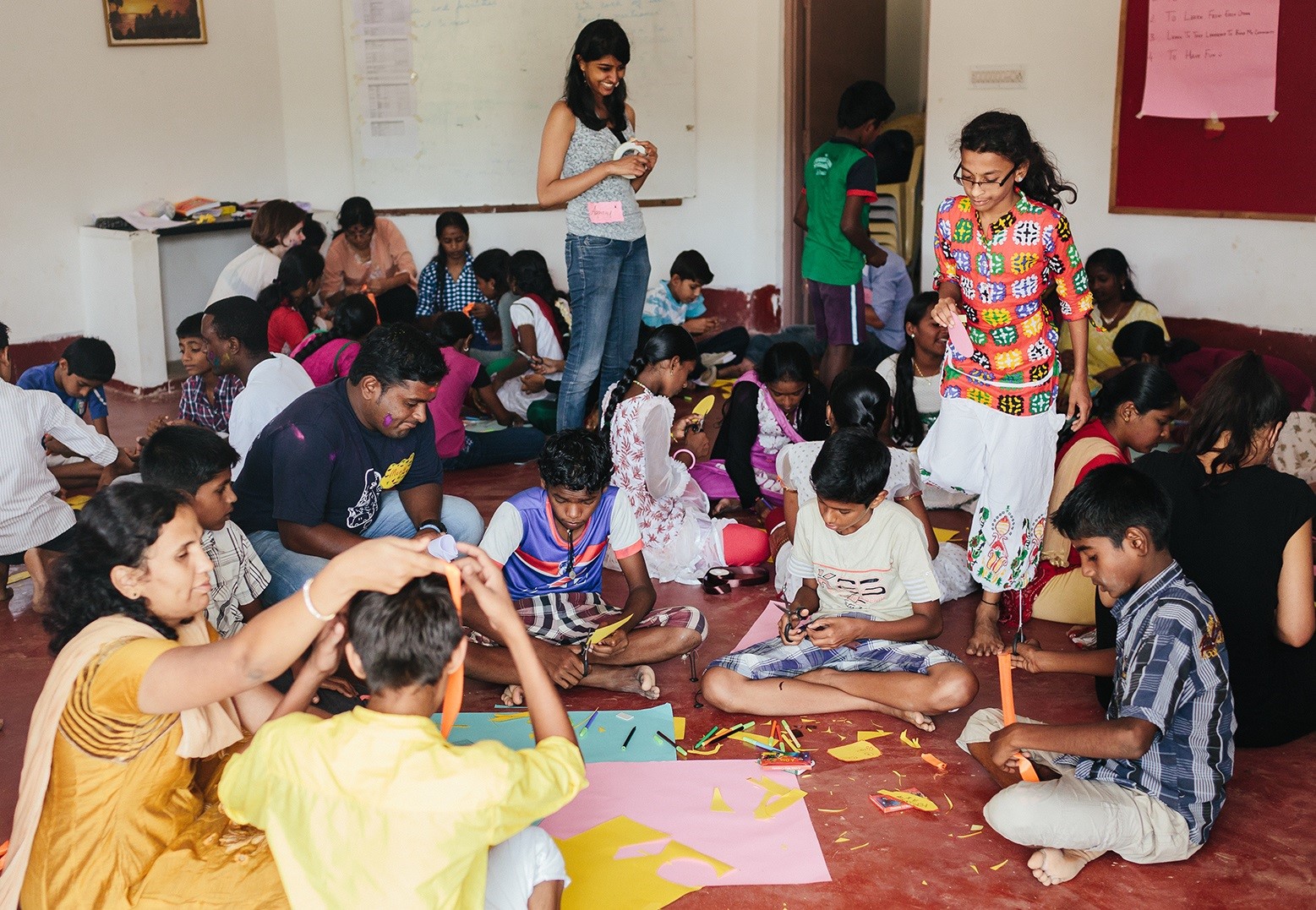India has the highest number of children suffering from stunted growth. It is estimated that there are at least 48 million stunted children under the age of five (39% of under-five children). Stunted growth not only affects a child’s height but also impinges on their emotional, social and cognitive development (Source: Caught Short, WaterAid, 2016).
The consequence of malnutrition in the first 1000 days from conception till the age of two results in stunted growth. In addition to this, the development of children and young people from vulnerable backgrounds are further challenged by external adversities such as extreme poverty, abuse, poor care, abandonment and conflicts within the family/community.
Adversity can cause a child to miss out on sensitive periods when social and emotional learning happens. The child is always trying to play catch up with developmental milestones. Such ‘uneven development’ can affect thinking skills, emotion and behaviour regulation, relationships and achievement. These factors can make the child susceptible to detrimental mental health conditions as they get older.
Although India can be proud of over 97% enrolment of children in primary schools, a significant majority of children enrolled in Government and low-cost private schools across the country start and continue their journey with significant disadvantages.
One of the visible result of this fact is the poor performance of the child in school. This has been amply demonstrated in a number of studies, the most recent being the assessment by the Delhi government that indicates over 70% children in Class VI from Government Schools are not able to read and do simple calculations of Class II level.
Amongst other factors, poor academic performance also contributes to a high level of drop-outs. Government statistics report that less than 50% children complete grade 10. In a situation where India should be encashing on its demographic advantage as being the largest population of young people in the world, a large percentage of young people from vulnerable backgrounds end up either sitting at home or entering unorganized labour markets. Lack of opportunities and peer pressure are more likely to lead young people to taking to crime and violence.
In parallel we find ourselves in a world that is changing at a frantic pace. The social and family structures are rapidly changing. Families and young people are migrating to cities in search of newer opportunities. Rapidly changing technology and automation are making existing jobs redundant and at the same time opening opportunities for people with a new set of creative skills.
Is there a way to alter the prospects of a poor start that children from vulnerable backgrounds experience? Do children from adversity entering a world so complex and unpredictable have the skills, the abilities, and the opportunities to leap frog into this future?

Research and impact evaluation studies at Dream a Dream have demonstrated that the key to stem the damage from this delayed growth in children and young people from vulnerable backgrounds and prepare them for the fast-changing world is – life skills. When children develop the ability to take initiative, solve problems, overcome difficulties, manage conflict, interact with each other and understand instructions, it helps them overcome the effects of adversity and catch up to normal development.
The 21st Century brings new social, economic and environmental challenges. At Dream a Dream, we perceive this as less of a challenge and more of an opportunity. We believe the rapidly changing world provides young people from vulnerable backgrounds a chance to leap frog into a future without poverty in spite of not having access to good quality academic education. Equipping young people with confidence and adaptable skills help them to access opportunities that level the playing field and change the script of their future.
To know more about our work and our strategies visit us at www.dreamadream.org.
Mahesh Chandrasekar
Director Research and Advocacy


